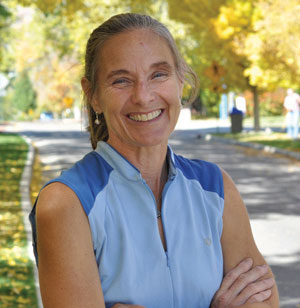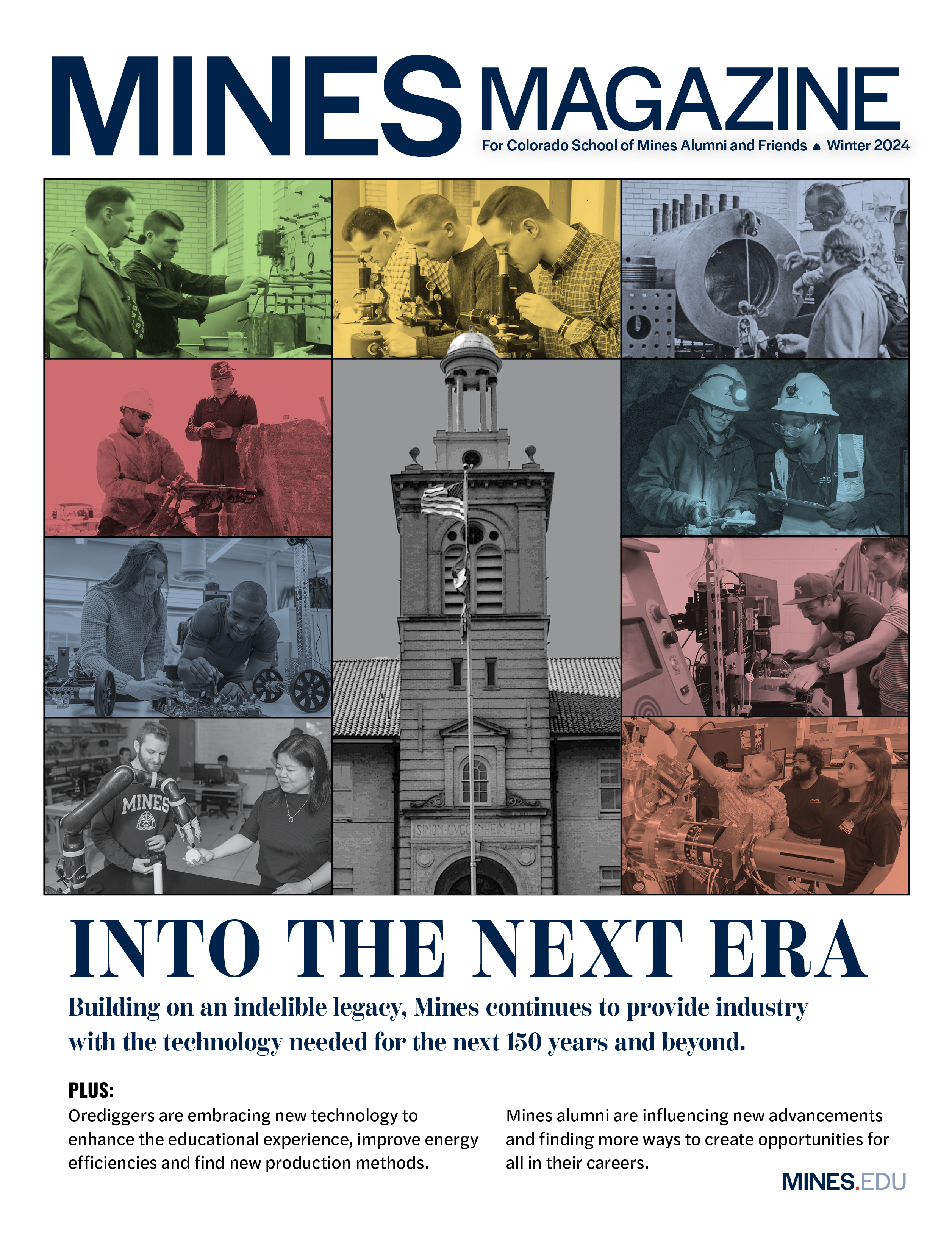
Twenty-five years ago, a colleague mentioned to Annette Bunge that dermatologists at the University of Utah were finding strange results in their study of chemicals moving through skin. Boldly crossing the discipline barrier, Bunge took a sabbatical in Utah, where she applied an engineer’s perspective to the biological problem, and quickly resolved the anomaly.
This initial collaboration led to 25 years of continuing interdisciplinary research in skin and membranes that has contributed to expanding how Mines and her department, recently renamed the Chemical and Biological Engineering Department, defines itself, as well as how governments, industry and regulators assess efficacy and risk in the absorption of chemicals through skin.
In her 2011 Faculty Senate Distinguished Lecture, Bunge paralleled the developments of her professional career to the developments at Mines since her arrival in 1981. One of the first women to join the Mines faculty, and one of the first professors to conduct research in the life sciences, Bunge was at the intersection of two movements that transformed the face of the institution during her 30-year tenure. In her lecture, she offers her unique perspective on these changes.
Like Mines, her research interests have broadened over the years from her early investigations into oil and gas recovery technologies to work on absorption of chemicals through skin and other permeable membranes research that combines chemical engineering with bioengineering and computer science. Bunge’s work and collaborations were some of the first at Mines to receive major funding from life sciences institutions, and they have broad implications in medicine, environmental and occupational safety, and renewable energy.
The FDA sponsored her research into methods for evaluating absorption rates of different topical formulations of generic drugs in order to bypass expensive and time-consuming clinical trials. Similarly, the EPA has used her research to develop guidelines for assessing dermal absorption for contaminants in water at Superfund sites. And she is in the early stages of research with the University of Florida to help determine the safety of beaches in the event of an oil spill.
In addition to working across disciplines, Bunge’s research bridges another gap between an experimental approach?and mathematical modeling. While researchers tend to put themselves in either the theorist camp or the experimentalist, Bunge occupies a space somewhere in between. “Being an experimentalist helps your theories be more meaningful,” she says, “and if you are a theoretician only, I think you don’t appreciate what you can do experimentally.”
There is, in fact, little about Bunge that fits conventional norms. She had never met an engineer, nor knew what one did, when she decided to accept a generous scholarship to pursue a degree in chemical engineering at the University of Oklahoma. She later transferred to SUNY Buffalo and graduated summa cum laude as the only woman in her program. She went on to earn a doctorate from the University of California at Berkeley before joining Mines’ Chemical and Petroleum Refining Engineering Department in 1981 as an assistant professor and the department’s first female faculty member. In 1991, she became one of three female faculty holding the position of full professor at Mines, and the first woman in the school’s history to achieve this through promotion; others had been hired directly to the position.
Bunge says that taking the title of professor emeritus is a bid to achieve a better work/life balance, yet her professional life is as busy as ever. “It is the latest in a series of failed strategies,” she laughs. Intensity is part of her makeup, and that includes her interests away from the lab, such as running, climbing and skiing.
“If I were going to define my passion all through my life, it is that I love learning,” says Bunge. “I get a real pleasure out of looking at something and saying, ‘Why does it work or how does it work?’ and then learning about it so I can understand that.” The desire to share this experience is what led her into academia, where she strives to inspire and nurture the same passion in her students. “Science and engineering make for a wonderful career,” she says. “You can be solving problems anywhere.”
So whether or not this professor emeritus manages to spend a little less time on campus in the future, expect her contributions to her field, her department and students to continue for years to come.




Wow, 25 years! Congrats on mastering probably just about everything there is to know in the chemistry field.